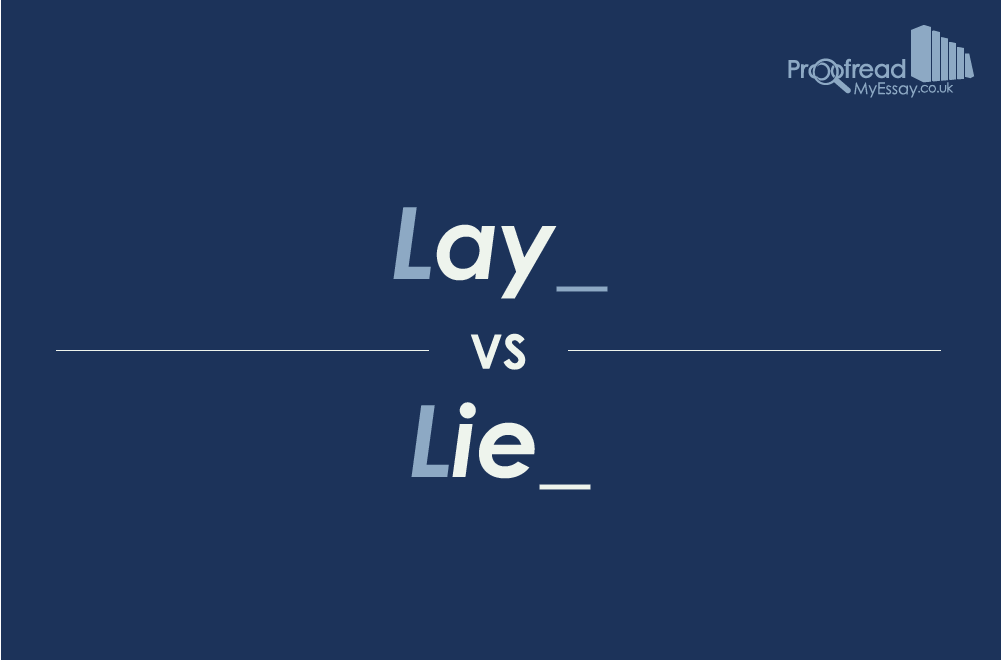Mixing up ‘lay’ and ‘lie’ is so common that many people don’t know there’s a difference. And as a result of how accustomed we are to hearing these two verbs used incorrectly, it can be difficult to know which is right!
This might not be a major issue in day-to-day life. In academic writing, however, it remains important to use both terms correctly.
Lie
To distinguish between ‘lay’ and ‘lie’, the other definition of ‘lie’ (i.e. ‘tell a falsehood’), will not be discussed here. The sense of ‘lie’ that interests us is its use to mean recline, sit back or rest. It would be used in a sentence like this:
He lies on the sun lounger.
The simple past tense of this word is ‘lay’:
She lay in bed all day.
Lay
‘Lay’ is also a present-tense verb meaning to place or put something down. This ‘lay’ requires a direct object (i.e. the thing being put down). It should be used in a sentence like this:
I lay my book on the table.
Find this useful?
Subscribe to our newsletter and get writing tips from our editors straight to your inbox.
The simple past tense of ‘lay’ is ‘laid’:
He laid his book down and went to sleep.
Lie or Lay?
The confusion stems from the fact that ‘lay’ is both a present-tense verb in itself, meaning to place or put something down, and the simple past tense of the verb ‘lie’, meaning to recline. As such, both of the following are correct:
Lay (put down): I lay my keys on the kitchen table.
Lay (past tense of ‘lie’): Peter lay down on the bed.
If you struggle with these terms, it can help to think about a chicken laying an egg: the chicken is putting something down, not lying down itself. The various verb forms of each word are shown below.
Tenses of ‘Lie’
- Simple present tense: ‘I lie down on the bed.’
- Simple past tense: ‘He lay down on the bed.’
- Past participle: ‘She had lain down on the bed.’
- Present participle: ‘I am lying down on the bed.’
Tenses of ‘Lay’
- Simple present tense: ‘I lay my book on the table.’
- Simple past tense: ‘He laid his book on the table.’
- Past participle: ‘She had laid her book on the table.’
- Present participle: ‘I am laying my book on the table.’
If you still find these words or other homophones tricky, or if you would just like more help with your writing, get in touch with the professionals at Proofread My Essay today!
